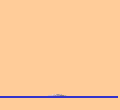Beckett's WAITING FOR GODOT has been called the quintessential play of the twentieth century. This 1997 Stratford Festival production, recorded before an audience in Toronto, benefits from good casting and wise direction. McCamus and Ouimette, as the attendant Vladimir and Estragon, have a rapport that's evident from their first lines, and their rapid exchanges of dialogue are often very funny. Blendick brings a sonorous, Orson Welles-like voice to the frighteningly absurd character of Pozzo. The small ensemble adheres well, and it's supported by convincing sound effects, music, and recording quality. D.B. © AudioFile 2002, Portland, Maine
[ advertising space : webmaster ]

script.vtheatre.net

ShowCases: 3 Sisters, Mikado, 12th Night, Hamlet, The Importance of Being Earnest, Dangerous Liaisons, Don Juan
prof. Anatoly Antohin Theatre UAF AK 99775 USA


my eGroups
About Samuel Beckett
About Waiting for Godot
Summary of Act I
Summary of Act II
Analysis of the Play
Character List
Literature References
Essays
Message Board
Bibliography
GS Sum
Spring 2006 Theatre UAF
"Beckett: "It's a beautiful day, isn't it?"
The friend: "Yes, it makes one glad to be alive."
Beckett: "Aw now, I wouldn't go that far.."
A Reader's Guide to Samuel Beckett
Book by Hugh Kenner; Farrar, Straus and Giroux, 1973 * 1. Waiting for Godot : [ questia ]
The Critical Response to Samuel Beckett by Cathleen Culotta Andonian; Greenwood Press, 1998
Beckett's Dying Words: The Clarendon Lectures, 1990 by Christopher Ricks; Oxford University Press, 1995
* Samuel Beckett's Waiting for Godot by Harold Bloom; Chelsea House, 1987 - Modern Critical Interpretations - Waiting for Godot - Contents - Editor's Note - Introduction - Bailing out the Silence - The Search for the Self - Waiting - Waiting for Godot - The Waiting Since - The Language of Myth - Beckett and the Problem of Modern Culture - Beckett's Modernity and Medieval Affinities - Chronology
Waiting for Godot in Sarajevo: Theological Reflections on Nihilism, Tragedy, and Apocalypse Westview Press, 1998
The Death of God and the Meaning of Life by Julian Young; Routledge, 2003
Beckett at 80/Beckett in Context by Enoch Brater; Oxford University Press, 1986
Samuel Beckett by John Pilling; Routledge & Kegan Paul, 1976
Samuel Beckett and the End of Modernity by Richard Begam; Stanford University Press, 1996
All That Fall by Samuel Beckett; Grove Press, 1957
Happy Days: A Play in Two Acts by Samuel Beckett; Grove Press, 1961
Frescoes of the Skull: The Later Prose and Drama of Samuel Beckett by James Knowlson, John Pilling; John Calder, 1979
The Long Sonata of the Dead: A Study of Samuel Beckett by Michael Robinson; Grove Press, 1969
Samuel Beckett: The Language of Self by Frederick J. Hoffman; Southern Illinois University Press, 1962
Samuel Beckett, a Critical Study by Hugh Kenner; Grove Press, 1961
Early Beckett: Art and Allusion in More Pricks Than Kicks and Murphy by Anthony Farrow; Whitston Publishing Company, 1991
Re--Joyce'n Beckett by Phyllis Carey, Ed Jewinski; Fordham University Press, 1992
Images of Beckett by John Haynes, James Knowlson; Cambridge University Press, 2003
Proust, Beckett and Narration by James H. Reid; Cambridge University Press, 2003
Murphy by Samuel Beckett; Grove Press, 1957
Watt by Samuel Beckett; Grove Press, 1959
Malone Dies by Samuel Beckett; Grove Press, 1956
The Drama in the Text: Beckett's Late Fiction by Enoch Brater; Oxford University Press, 1994
Theatre on Trial: Samuel Beckett's Later Drama by Anna Mcmullan; Routledge, 1993
Beckett in Directing Class script breakdown
Godot biblio notes in Directing directory
